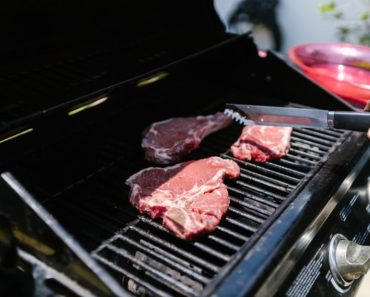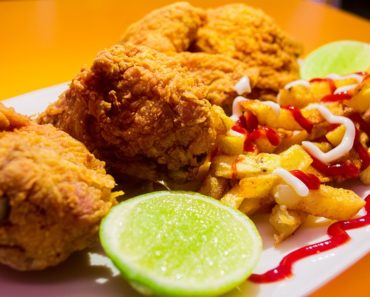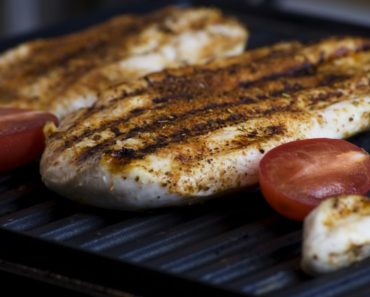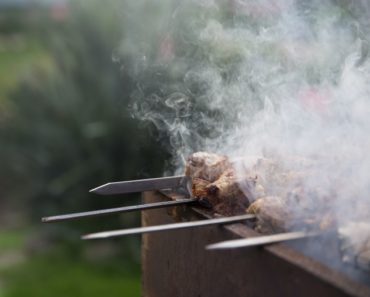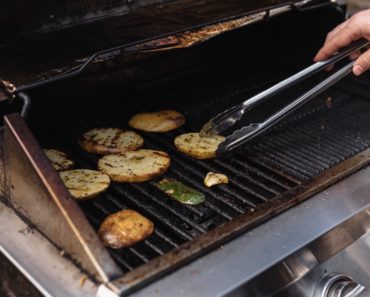Natural gas vs propane grill
When it comes to grilling, there are various fuel options available, each with its own benefits and drawbacks. Natural gas and propane are two of the most popular types of grill fuel. Here we will compare and contrast these two options, so you can decide which is best for you.
Choosing the right grill for your needs can be a difficult decision. Do you go with a natural gas grill or a propane grill? Both have their benefits, but which one is right for you? Here’s a look at the pros and cons of each so you can make the best decision for your needs.
What is a natural gas grill?
A natural gas grill is a grill that uses natural gas as its fuel source. This type of grill is connected to your home’s natural gas line, and the gas is used to heat the grill’s burners.
Natural gas is a fossil fuel that is derived from underground deposits of natural gas. It is a cleaner-burning fuel than propane and thus produces less pollution. However, it can be more expensive than propane, and it can be difficult to find in some areas.
Benefits of natural gas grills
1. Natural gas grills are more affordable to operate than propane grills.
2. Natural gas grills are more efficient than propane grills, meaning they use less fuel to achieve the same results.
3. Natural gas grills are more environmentally friendly than propane grills, as they produce fewer emissions.
4. Natural gas grills are easier to start and stop than propane grills.
Drawbacks of natural gas grills
1. Natural gas is not always easy to find in areas that don’t have ready access to pipelines or other facilities where it’s stored and distributed.
2. If your home lacks the appropriate hookups, connecting a natural gas grill to your home’s main line could be expensive and laborious.
3. Natural gas grills cost more than propane grills up front, though their lower operating costs may make them cheaper over time.
Features:
– Price: usually more affordable than propane grills
– Ease of use: easy to start and stop
– Environmental friendliness: produces fewer emissions
– Design: some models have a sleek, modern look
– Ignition system: most models have a built-in ignition system
– Style: natural gas grills are available in both cart-style and built-in models
– Material: most natural gas grills are made from stainless steel
– BTU: you can purchase natural gas grills with a wide range of BTUs, making them suitable for all types of cooking.
– Warranty: the majority of natural gas grills come with a standard warranty of 1-2 years. Most grill models have a standard warranty of 1-2 years. If your natural gas grill has a control valve system, check with the manufacturer or retailer to see what kind of warranty it comes with and for how long .
– Customer Service: most natural gas grill manufacturers have a track record of providing reliable customer service.
– Capacity: how many people do you typically cook for? If you regularly entertain large groups of people, you may want to consider purchasing a larger natural gas grill with more cooking capacity.
– BTU consumption: what type of food will you be grilling? High BTU foods require higher heat levels, which can mean shorter cooking times. Low BTU foods generally take longer to cook but don’t necessarily require as much heat.
– Durability: natural gas grills are more expensive than propane grills, so you should ensure that your grill is built to last.
– Portability: because natural gas grills are connected to the main line in your home, they cannot be moved around as easily as propane grills can. Most natural gas grills do not come with a cart or a stand and must be placed on a sturdy surface .
– Safety: most models of natural gas grills have an electronic ignition system for safe, easy starting. Natural gas flame gauges also offer additional safety by indicating if there is too much or too little flame. In addition , some models feature control valves that provide optimal temperature control. Most natural gas grill models also include hose and regulator assembly systems that allow you to connect a propane tank.
-Some natural gas grills come with a smoker box, which allows you to smoke meat and other foods.
-Many natural gas grills have a built-in rotisserie, which is perfect for roasting chicken or other meats.
What is a propane grill?
A propane grill is a grill that uses propane as its fuel source. This type of grill has a propane tank that needs to be filled with propane before use.
Propane is a liquefied petroleum gas that is derived from crude oil or natural gas. It is a cheaper fuel than natural gas, and it is widely available. However, it is a less environmentally friendly fuel that emits carbon dioxide and other toxins into the atmosphere when burned.
Benefits of propane grills
1. Propane grills heat up faster than natural gas grills.
2. Propane grills have a higher heat output than natural gas grills.
3. Propane tanks are available in a variety of sizes, so you can find one that fits your needs.
4. Propane tanks can be stored outside, whereas natural gas tanks must be stored indoors.
Drawbacks of propane grills
1. Propane grills can be dangerous if not used properly.
2. Propane tanks need to be regularly refilled, and this can be expensive.
3. Propane is a less environmentally friendly fuel than natural gas.
4. Propane grills are not as portable as natural gas grills.
Features:
1. Size: how many people do you typically cook for? If you regularly entertain large groups of people, you may want to consider purchasing a larger propane grill with more cooking capacity.
2. BTU: what type of food will you be grilling? High BTU foods require higher heat levels, which can mean shorter cooking times. Low BTU foods generally take longer to cook but don’t necessarily require as much heat.
3. Safety: since propane tanks can be easily ignited by a stray ember or flame, it is important that you only use propane grills in well-ventilated areas and keep children and pets away from the grill area at all times . When purchasing a propane grill, look for one with safety features such as an electronic ignition system and hose and regulator assembly systems that allow you to connect a propane tank .
4. Portability: like natural gas grills, most models of propane grills have wheels that can be fixed into place during cooking so that you are able to move them around your backyard easily . Most propane grills come with a cart or stand so that you can place them on your preferred surface.
5. Warranty: the best propane grills have warranties that range from one year to ten years . The longer the warranty, the better , because it means that the company believes in its product.
6. Price: propane grills can range in price from a few hundred dollars to a few thousand dollars . It is important to consider your budget when purchasing a propane grill. However, remember that higher quality grills with longer warranties may be more expensive but they are also better investments.
– Extra cooking space: some propane grills come equipped with side burners or extra cooking racks to provide additional cooking capacity.
– Built in thermometer: if you like to check the internal temperature of your meat, look for a model with an integrated probe thermometer on the lid. Models with built in thermometers tend to be more accurate than separate probes.
– Additional features: some models include shelves for storage, cutlery holders and tools hangers that allow you to keep all of your accessories neatly stored away when not in use. Others feature foldable side trays so you can easily transport food from the grill to your table.
– Material: propane grills are made from a variety of materials, including stainless steel, cast iron and enamel. Each has its own benefits and drawbacks – for example, stainless steel is easy to clean but can rust if not properly maintained, while cast iron is heavy but retains heat well. Choose the material that best suits your needs and lifestyle.
Choosing between natural gas and propane for your grill can be difficult, but there are many factors to consider when making this choice. In the end, only you can decide which fuel will best suit your needs. Weigh all of the criteria presented above for both fuels against your personal preferences to make an informed decision about which is right for you.
Natural gas grills vs propane: what’s the difference?
If you want to grill with ease and simplicity, look no further than a natural gas grill. Natural gas allows you to more easily control your cooking temperature, and it doesn’t produce the fumes that propane often does. While natural gas is typically more expensive than propane, it burns cleaner and requires less maintenance. If you plan on always having access to a ready source of natural gas (such as hooking up your grill directly to your home’s main line), there really isn’t much difference between the two types of grills.
Natural gas grills vs propane: what’s the similarity?
The main similarity between natural gas grills and propane grills is that they are both used to cook food. They also share many of the same features, such as built-in ignition systems and adjustable cooking temperatures. The main difference between the two is that natural gas grills use natural gas as their fuel source, while propane grills use propane. If you have a ready source of natural gas, a natural gas grill may be the better choice for you. Otherwise, propane is a more affordable and readily available fuel.
Which is right for you?
If you are looking for an affordable and grill that is environmentally friendly and easy to use, a natural gas grill is a good option. If you need a higher heat output and want to use a fuel source that heats up quickly, then a propane grill may be the better choice.
The winner: Natural gas vs propane
Propane grills have a higher heat output than natural gas grills. They also have a lower minimum ignition temperature, making them easier to start up. Furthermore, they are widely available and there is a wider choice of sizes available. On the other hand, natural gas grills produce fewer emissions and are more efficient than propane grills. In addition, they are less costly to operate because you don’t need to buy fuel for them as often as you do with propane tanks.
FAQs:
Is a propane grill better than a natural gas grill?
When it comes to propane grills, there are two main types: portable and built-in. Portable propane grills are just that – portable. They’re easy to move around and set up, making them perfect for camping or tailgating. Built-in propane grills, on the other hand, are designed to be installed in your outdoor kitchen or patio area. They offer more features and options than portable grills, and they tend to be more affordable than other types of grills.
How do I choose?
Which fuel source is right for you? Here are some things to consider:
-Natural gas grills are more affordable to operate than propane grills.
-Propane grills heat up faster than natural gas grills.
-Propane tanks are available in a variety of sizes, so you can find one that fits your needs.
-Propane tanks can be stored outside, whereas natural gas tanks must be stored indoors.
-Natural gas grills are more environmentally friendly than propane grills, as they produce fewer emissions.
-Natural gas grills also have a higher heat output than propane grills.
Which type of grill should you choose?
Again, there is no one right answer for everyone. Here are some things to consider:
-If you want an affordable and environmentally friendly grill that’s easy to use, the natural gas grill may be your best choice.
-If you need a grill with higher heat output and/or want a fuel source that heats up quickly, then a propane grill is probably the better choice for you.
Where can I find more information?
We suggest you read our article on how to choose a grill if you need assistance in finding the right type of grill for your needs. You can also contact the manufacturers directly if you have any additional questions about these two grills and their pros/cons.
Where can I buy a Natural gas or Propane Grill?
There are many places where you can purchase a natural gas or propane grill from. Here are some suggestions:
-Local stores that specialize in barbecues may carry either type of grill, depending on where you live. In addition, they often offer discounts for purchasing an entire set at once, which is great if you’re looking for more than one of these grills.
-If neither your local store nor the store online carry the grill you’re looking for, try searching on Amazon. You’ll likely find a variety of grills to choose from, and be able to compare prices quickly and easily.
-If you have a specific brand in mind, you can also search for authorized dealers on the manufacturer’s website. This will give you a list of retailers who sell only that particular brand of grill.
-Finally, don’t forget to check out barbecues at yard sales or craigslist, as you may be able to find a good deal on one of these grills.
-If you simply want advice about which grill is right for your needs, try contacting the manufacturers directly ! They’ll be happy to help you choose the perfect grill for your cooking needs.
Conclusion
When it comes to deciding between natural gas and propane grills, the best option depends on your needs and preferences. Consider what you want out of a grill and how important environmental factors are to you before making a decision. In the end, the right choice for you is the one that best meets your needs.
In conclusion, both types of grill have their benefits and drawbacks. However, if you’re looking for a fuel that provides a high heat output and an easy-to-start grill, then you should choose a propane grill. If you prefer a lower heat output and an environmentally-friendly grill, then the natural gas grill is probably the better choice for you.

